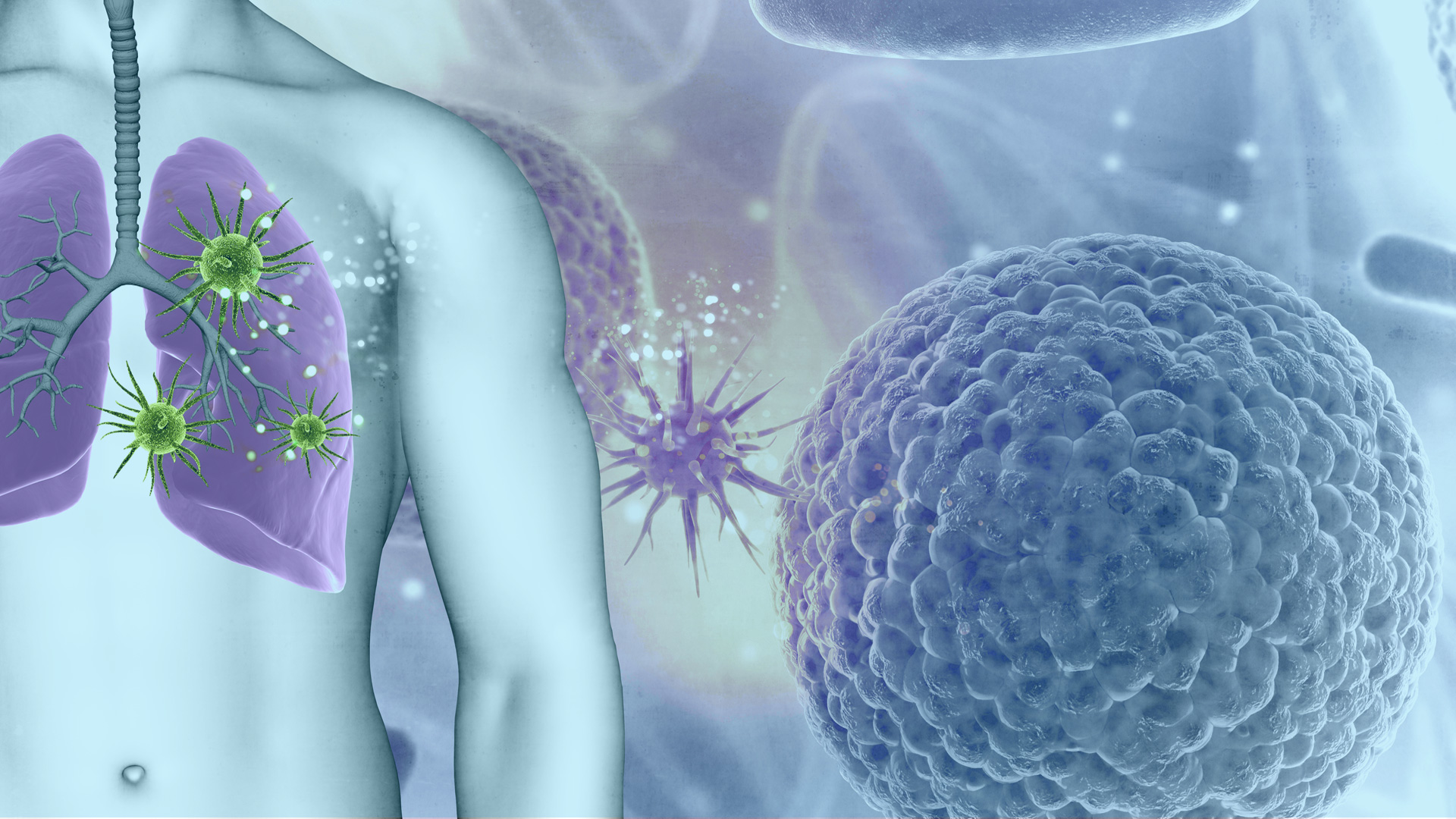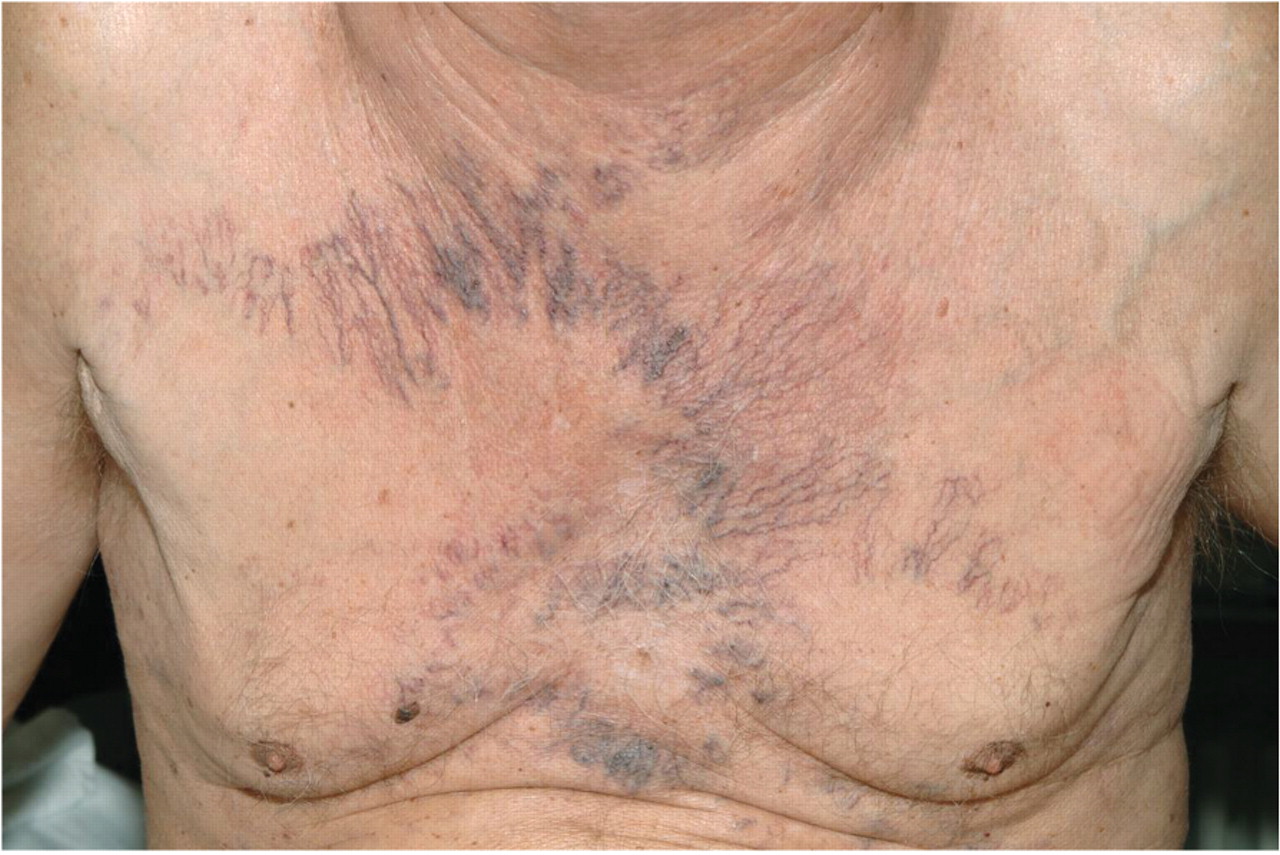
Causes
Lung cancer is the leading cause of death from malignant disease worldwide. Smoking is considered to be the main cause of lung cancer (85% of all cases ) and 40 pack years smokers have a 20-fold increased risk of the disease.
In addition, a number of environmental factors such as exposure to asbestos, radon, arsenic, chromium, formaldehyde, nickel, ionizing radiation, heavy metal powders and genetic factors are considered responsible for the development of lung cancer.
SYMPTOMS
- cough 50-75%
- hemoptysis (coughing blood) 25-50%
- dyspnoea (difficulty in breathing) 25%
- chest pain 20%
- Hoarseness
- superior vena cava syndrome
- Horner syndrome
- fatigue, weight loss

DIAGNOSIS - STAGING Once lung cancer is suspected, the next step is to make a definitive diagnosis with a cytology or histology examination and, at the same time, to establish the stage the disease. The bronchoscopy particular the endobronchial ultrasound will confirm the final diagnosis and the mediastinal staging, while imaging tests such as CT of the upper abdomen and brain, bone scan and the PET CT scan will give information about the extent of the disease and the presence of metastases.

TREATMENT Our team has been fighting lung cancer for twenty years. Over the years, we have often been heroes, but sometimes the disease prevails. It is undoubtedly a tough illness; difficult for sufferers, for relatives and healers. For the first time we are optimistic about the disease. Analyzing cancer at the molecular level has opened up unprecedented treatment horizons even for those in the advanced stages of the disease who cannot unedrgo surgery. Drugs such as tyrosine kinase inhibitors (TKIs) , ALK inhibitors and immunotherapy, although controversial median survival results have already been established as chemotherapy-friendly treatments in targeted patients. At this point, the value of the biopsy becomes greater to treat the disease (see bronchoscopy , endobronchial ultrasound ).
Radiotherapy and chemotherapy continue to play a prominent role, more selective, more targeted and less harmful towards healthy tissues.
The surgery is the best treatment, however, not all patients are eligible for surgery. The role of the interventional pulmonologist is to decide which patients are selected.
NO MORE SURRENDERING TO LUNG CANCER. Even sufferers in the late stages of the disease are now able to fight with modern "weapons".



